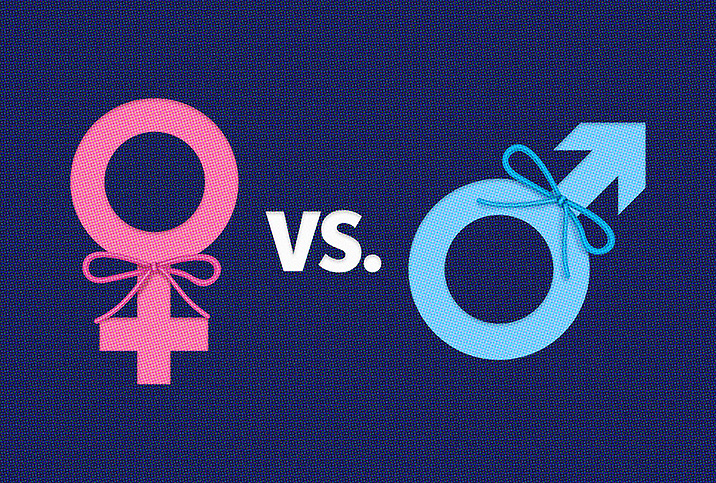Does the Affordable Care Act Cover Birth Control?

The Affordable Care Act (ACA) requires private health insurance plans to cover a variety of preventive care—pediatric well-child visits, cancer screenings, immunizations and even some over-the-counter medications—without any cost to the consumer. Also on this list? Contraceptives.
Sixty-five percent of American women of childbearing age—nearly 50 million people—use some form of contraception, according to data from the Centers for Disease Control and Prevention (CDC). And some of these women find themselves paying out of pocket for their birth control.
Since Roe v. Wade was overturned in June 2022, confusion has increased about whether birth control is still covered or even legal as access to contraception has diminished, particularly in states that have enacted bans or severe restrictions on abortion.
Two new studies by reproductive rights research and advocacy group the Guttmacher Institute found "restrictive [abortion] policies disrupt individuals' access to sexual and reproductive healthcare, which in turn affects people's ability to afford and use their preferred contraceptive method."
Reproductive rights organizations, as well as the Biden administration, have taken steps to educate the public and insurers on ACA contraceptive coverage.
What are health plans supposed to cover?
Some health plans are exempt from covering contraceptives at all. Military personnel and their families with Tricare coverage may find not all birth control is covered and they may incur some out-of-pocket costs. Some employers may refuse to cover birth control on religious grounds.
"If your employer objects to birth control coverage and it's not in your plan, that's an exemption from the ACA," said Mara Gandal-Powers, director of birth control access at the National Women's Law Center (NWLC) in Washington, D.C. "But for the vast majority of people, they should be getting this coverage. Where we see problems happening is where health plans are not complying with the law."
Most typically, problems occur when insurance providers determine a generic brand of a product will be offered at no cost while the brand name does cost something, Gandal-Powers explained. But plans are supposed to have a process in place to keep patients from paying out of pocket if their physicians determine a specific product is right for them.
"For some people, that's 'I've tried all the generics, and one of them made me gain 15 pounds in two weeks. One of them caused me migraines. The brand name is the one that works for me. I should be able to get that without cost-sharing,'" Gandal-Powers said.
How does contraceptive coverage confusion affect women?
When people have to pay for preventive care, including birth control, many of them skip that care or use it spottily, Gandal-Powers said.
"Requiring out-of-pocket expenses for family-planning services will disproportionately affect women who fall below the federal poverty line or are uninsured and live far away from clinics that offer free services, such as Planned Parenthood," said Kathy Lee-Sepsick, founder, CEO and president of the medical technology company Femasys. "Not only does free birth control permit women to pursue the reproductive healthcare options they need, but it also ensures it is accessible to all women, no matter their age or socioeconomic status."
Since the fall of Roe, more women are seeking longer-lasting or even permanent forms of birth control, including implants, IUDs and tubal ligations. As demand for these products and procedures grows, patients who want to use them may find they're paying more out-of-pocket costs for them. Newer ones may not yet be included on the Food and Drug Administration's list of approved contraceptives that insurers use to determine coverage, Gandal-Powers explained. This situation could stifle innovation of better birth control, she added, if pharma and tech companies are worried about their products being covered by insurers.
"We shouldn't be stuck with the same kind of contraceptives forever," Gandal-Powers said. "It's hard to convince investors to invest in new pharmaceuticals and new technologies if they can't succeed on the market."
Lee-Sepsick's company has created and is currently testing one such permanent product, FemBloc. The company expects the procedure to be covered by insurers, as it will be the first one in its particular ACA category.
"Currently, insurance plans vary in their coverage decisions, since only one form of contraception in each category is mandated for coverage," Lee-Sepsick said. "Women may need to consider other options based on their specific insurance coverage. With FemBloc, we hope to eliminate this issue, as it is expected to be the only nonsurgical option for permanent birth control."
What's being done to cover contraceptives?
After Roe v. Wade was overturned, the departments of Labor, Health & Human Services and Treasury issued updated, detailed guidance on birth control coverage by insurers under the Affordable Care Act. The guidance also listed the Biden administration's actions to bolster access to reproductive care and contraception, including launching the ReproductiveRights.gov public awareness website, calling on the health insurance industry to reaffirm its commitment to covering birth control, and issuing guidance on coverage to retail pharmacies.
The NWLC's CoverHer project—as well as others, including the Reproductive Health Access Project, Partners in Contraceptive Choice and Knowledge (PICCK) and SisterSong—also works to educate women about contraceptive coverage and access.
Gandal-Powers urged women to fight for coverage and file appeals with insurers if they've been denied coverage.
"The Affordable Care Act is still the law of the land, and birth control is still legal," she said. "If people want birth control, they should do whatever they have to do to get it. And that includes making sure your insurance company is following the law."


















